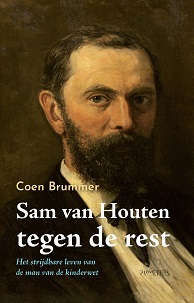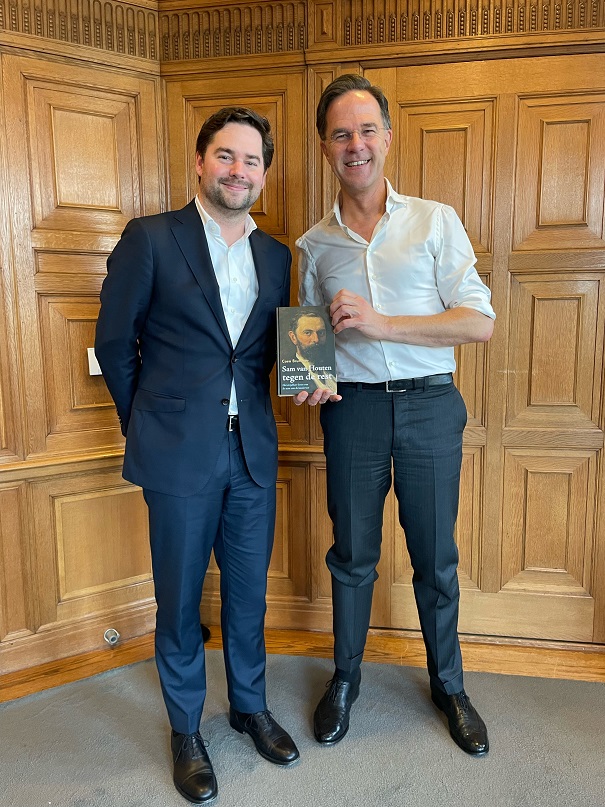Biography Samuel van Houten

Samuel van Houten was one of the main charachters of Dutch liberalism in the second half of the nineteenth century. His election to Parliament in 1869 marked the beginning of the end for the era of Thorbecke, who had been leader of the Dutch liberals since 1848. It was the start of half a century in which Van Houten was a prominent figure in the political landscape. In Parliament as well as in numerous publications, he took controversial positions on social rights, education reform, marriage and suffrage. He attacked Thorbecke, whom his father admired, succeeded in passing the first law against child labour in the Netherlands, and eventually became a minister of home affairs in the Röell-administration (1894-1897), responsible for passing a new suffrage-bill.
In his younger years, Van Houten blamed the older liberals for being too satisfied with the reforms of 1848. But as the years went by, he himself became more conservative. This was particularly clear, because a new generation of social liberals had entered the stage. Van Houten himself was convinced he propagated the same political positions for his entire career. Eventually, Van Houten lost seven elections. His heydays were over. Until his death on the age of 93, he said he remained true to his convictions.
Only by linking the personal and the political, we are able to understand Van Houten’s development, political philosophy, style and his positions within the evolving political landscape and cultural climate. That is why this study aims at explaining and interpreting his public acknowledgments through his personal characteristics. Three topics will be discussed in particular: style, political and social philosophy, and the factor ‘time’ when it comes to rise and fall of three generations of Dutch liberals.
The goal of this study is twofold. On one hand, it aims to extend our knowledge on the development, motivation and deeds of an influential politician. On the other, studying Van Houten also means studying his context. If we ask ourselves whether Van Houten was a representative figure for Dutch liberalism between 1870-1930, this could teach us a thing or two about liberalism in that particular period.
This project will be supervised by Prof. Hans Renders and Prof. Gerrit Voerman.
Coen Brummer (1986) took a MA in political history and a MSc in history and philosophy of science. He worked as a speech writer for the subsequent Ministers of Justice and Security, and he was the executive director of the Hans van Mierlo foundation. He published before on the political history of the nineteenth and twentieth century.
E-mail: c.c.brummer rug.nl

The biography Sam van Houten tegen de rest was the thesis of a PhD defense on November 9, 14:30 PM. The book launch of the biography (published at Prometheus) took place at Douwes Bookshop, The Hague.
-
Interview De Nieuws BV, NPO Radio 1
-
Interview Historisch Nieuwsblad
-
Interview Dagblad van het Noorden
-
Review Nederlands Dagblad
-
Interview NRC Handelsblad
-
Review de Volkskrant

